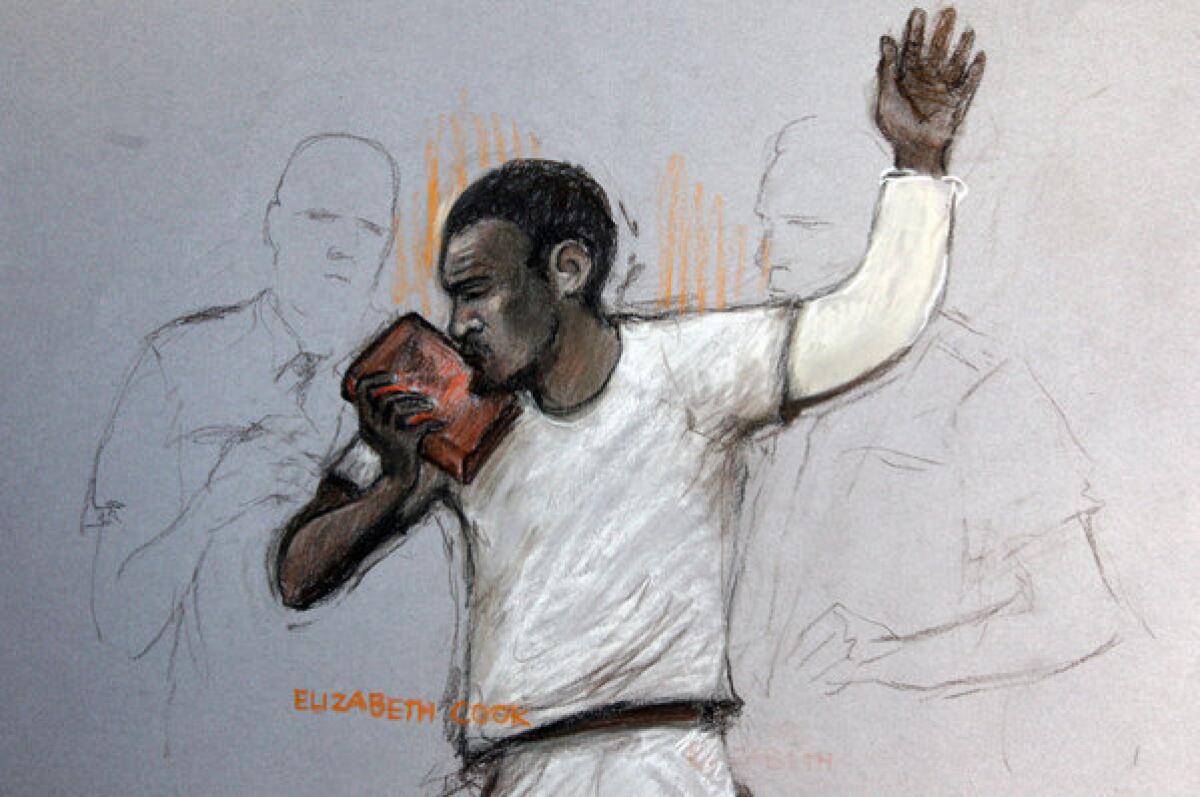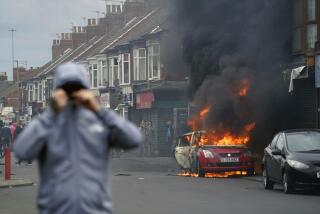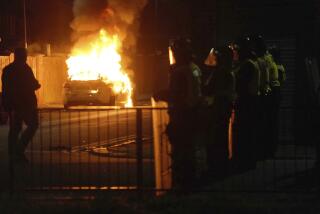David Cameron launches probe of Islamic extremism in Britain

LONDON -- British Prime Minister David Cameron launched an investigation Monday into whether universities, prisons, Muslim charities and the Internet have been allowed to become a “conveyor belt” of Islamist radicalization of the kind that apparently motivated the hacking death of a soldier on a London street last month.
Cameron told lawmakers that Britain needed to do a better job understanding the root causes of “an extremist ideology that perverts and warps Islam to create a culture of victimhood and justified violence.” He said that a new task force was convened Monday to address the problem and that a parliamentary panel would look into whether the May 22 hacking attack on machine-gunner Lee Rigby could have been prevented.
Only a few hours before Cameron spoke, the two primary suspects in the vicious assault appeared in separate courtrooms for procedural hearings. One of the men, Michael Adebolajo, held and kissed a copy of the Koran during the brief proceedings and asked the judge to address him as Mujahid Abu Hamza, according to reporters who were present. “Mujahid” can mean “fighter” or “warrior” in Arabic. His lawyer agreed to refer to him that way, according to British news accounts.
Adebolajo, 28, was filmed shortly after the attack in southeast London carrying butcher knives covered in blood and describing the death of Rigby as vengeance for the killings of Muslims by British soldiers in countries such as Afghanistan and Iraq.
He and his alleged co-conspirator, 22-year-old Michael Adebowale, were shot and wounded by police before their arrest. Both suspects are British citizens of Nigerian descent.
“When young men born and bred in this country are radicalized and turned into killers, we have to ask some tough questions about what is happening in our country,” Cameron told the House of Commons. “It is as if for some young people there is a conveyor belt to radicalization that has poisoned their minds with sick and perverted ideas. We need to dismantle this process at every stage -- in schools, colleges, universities, on the Internet, in our prisons, wherever it is taking place.”
Cameron said authorities have tried aggressively to counter extremism by expelling radical preachers and by patrolling the Internet. He noted that the government has taken down 5,700 items of “terrorist material” from the Internet and nearly 1,000 more items hosted on servers outside Britain.
Rigby’s death was the first on British soil as a result of Islamic terrorism since the 2005 suicide bombings on London’s transit system.
But it has not been for want of trying: 18 people have already been convicted this year of planning terrorist attacks, including one plot that failed only because the intended target, a rally by members of an anti-Muslim far-right group, ended earlier than expected. The plotters were caught afterward because of an unrelated traffic violation.
ALSO:
Hagel, NATO counterparts to discuss possible training role in Libya
Afghan bombings kill nine children, 10 others
A German mouthful bites the dust
More to Read
Sign up for Essential California
The most important California stories and recommendations in your inbox every morning.
You may occasionally receive promotional content from the Los Angeles Times.











